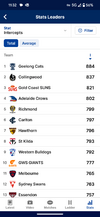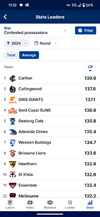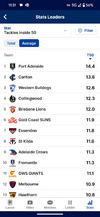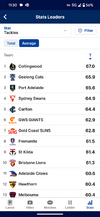northcotehead
@Corblimeymick (Twitter)
- Jun 18, 2019
- 119
- 450
- AFL Club
- Collingwood

So we are a system based team. Can someone more intelligent than me enlighten me on what that actually means. Fly refers to 'the system' in every presser. Are other teams not system based? Does our system rely on us applying manic pressure for a selected period of time and then 'resting' or 'consolidating', which then allows the opposition to come back. What the he'll is the system?












